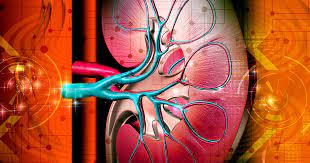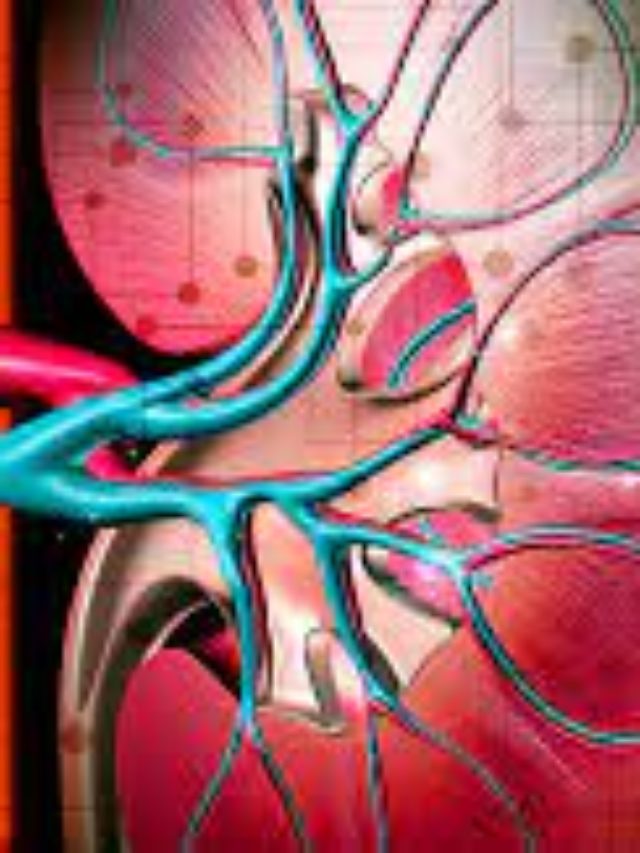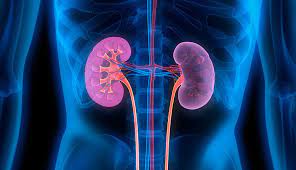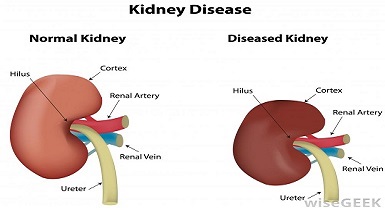Treatments for Chronic Kidney Disease
Revolutionary Treatments for Chronic Kidney Disease: Latest Research and Breakthroughs

Chronic kidney disease (CKD) is a serious condition that affects millions of people worldwide. It occurs when the kidneys are damaged and cannot function properly over a prolonged period of time. Without treatment, CKD can progress to end-stage renal disease, which requires dialysis or a kidney transplant to maintain life. However, there are several treatments available that can slow the progression of CKD and improve quality of life.
- Manage Diabetes and hypertension:
One of the most important treatments for CKD is managing underlying medical conditions, such as diabetes and hypertension, that can contribute to kidney damage. Controlling blood sugar levels and blood pressure can reduce the risk of further kidney damage and other complications.The leading causes of CKD are diabetes and hypertension, both of which can cause kidney damage if not managed properly. If you have diabetes or hypertension, it is essential to manage these conditions to prevent or slow the progression of CKD. Here are some tips for managing underlying medical conditions to prevent kidney damage:
Tips to control Diabetes and hypertension
- Control your blood sugar levels if you have diabetes
Keeping your blood sugar levels in a healthy range can help prevent or delay the onset of CKD. Work with your healthcare provider to establish a target blood sugar level, and follow a healthy diet and exercise plan to help achieve this goal. Take any medications as prescribed, and monitor your blood sugar levels regularly to ensure they are within the target range.
-
Manage your blood pressure if you have hypertension
Hypertension can damage the blood vessels in the kidneys, leading to CKD. Work with your healthcare provider to establish a target blood pressure level, and take any medications as prescribed to achieve this goal. Limit your intake of salt and alcohol, and maintain a healthy weight through diet and exercise.
-
Monitor your kidney function regularly
If you have diabetes or hypertension, it is important to monitor your kidney function regularly to detect any signs of CKD early on. Your healthcare provider can perform a simple blood or urine test to check your kidney function. Early detection and treatment can help slow the progression of CKD and prevent further damage.
-
Maintain a healthy lifestyle
In addition to managing diabetes and hypertension, maintaining a healthy lifestyle can also help prevent kidney damage. Eat a healthy diet that is low in salt, saturated fats, and processed foods. Engage in regular physical activity to maintain a healthy weight and improve cardiovascular health. Avoid smoking and limit your alcohol intake to reduce your risk of developing kidney disease.
In Addition to these, work with your healthcare provider to establish a personalized treatment plan that meets your individual needs and goals.
- Medical Therapy :
Another important treatment for CKD is medication therapy. Angiotensin-converting enzyme (ACE) inhibitors and angiotensin receptor blockers (ARBs) are commonly used medications that can help to reduce blood pressure and proteinuria (excess protein in the urine) in people with CKD. Studies have shown that these medications can slow the progression of CKD and reduce the risk of cardiovascular events in people with CKD.
- Lifestyle modification:
In addition to medical treatments, lifestyle modifications can also play a role in managing CKD. A healthy diet that is low in salt, saturated fats, and processed foods can help to improve overall health and reduce the risk of further kidney damage. Regular exercise can also be beneficial for people with CKD, as it can improve cardiovascular health and help to control blood pressure and blood sugar levels.
Tips for lifestyle modification :
Lifestyle modifications are essential for managing chronic kidney disease (CKD) and slowing its progression. Here are some tips for lifestyle modifications:
- . Follow a kidney-friendly diet
A kidney-friendly diet can help slow the progression of CKD and reduce the risk of complications. Work with a registered dietitian to develop a meal plan that is tailored to your individual needs and goals. A kidney-friendly diet typically involves limiting salt, potassium, and phosphorus, and increasing protein from sources such as poultry, fish, and eggs.
- Exercise regularly
Regular exercise can help maintain a healthy weight, reduce blood pressure, and improve cardiovascular health. Consult with your healthcare provider before starting an exercise program, especially if you have advanced CKD.
- Manage stress
Stress can have a negative impact on overall health and kidney function. Find ways to manage stress, such as meditation, deep breathing, or yoga. Consider talking to a mental health professional if stress is interfering with your daily life.
- Quit smoking
Smoking can damage blood vessels and worsen kidney function. Quitting smoking can improve overall health and slow the progression of CKD. Talk to your healthcare provider about strategies for quitting smoking.
- Limit alcohol consumption
Excessive alcohol consumption can worsen kidney function and increase blood pressure. Limit alcohol consumption to no more than one drink per day for women and two drinks per day for men.
- Manage underlying medical conditions
As mentioned earlier, medical conditions such as diabetes and hypertension can contribute to kidney damage. Managing these conditions through medication, lifestyle modifications, and regular monitoring can help slow the progression of CKD. Lifestyle modifications are essential for managing CKD and slowing its progression. By following a kidney-friendly diet, exercising regularly, managing stress, quitting smoking, limiting alcohol consumption, and managing underlying medical conditions, you can improve overall health and kidney function. Work with your healthcare provider to develop a personalized treatment plan that meets your individual needs and goals.
- New Treatments:
Several recent studies have investigated new treatments for CKD. For example, research has shown that SGLT2 inhibitors, a class of medications used to treat diabetes, may also be beneficial for people with CKD. These medications work by blocking the reabsorption of glucose in the kidneys, which can reduce the workload on the kidneys and slow the progression of CKD. In clinical trials, SGLT2 inhibitors have been shown to reduce the risk of kidney failure and cardiovascular events in people with CKD.
Another promising treatment for CKD is stem cell therapy. Stem cells are undifferentiated cells that have the ability to differentiate into different types of cells in the body. In animal studies, stem cell therapy has been shown to improve kidney function and reduce the progression of CKD. Clinical trials are currently underway to investigate the safety and efficacy of stem cell therapy for people with CKD.
In conclusion, there are several treatments available for chronic kidney disease that can slow the progression of the disease and improve quality of life. Managing underlying medical conditions, medication therapy, lifestyle modifications, and new treatments such as SGLT2 inhibitors and stem cell therapy all hold promise for people with CKD. If you have CKD, it is important to work with your healthcare provider to develop a treatment plan that is tailored to your individual needs and goals.



